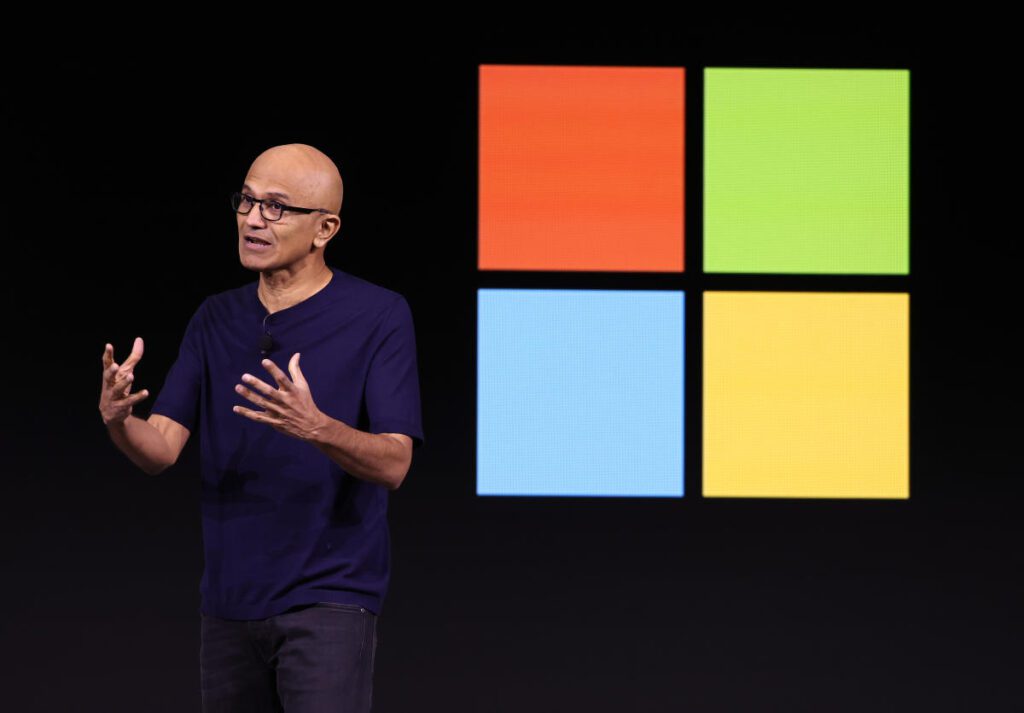Microsoft Sees Surge in Adoption of Generative AI-Based Copilot Software
Microsoft (MSFT) has reported a significant increase in the adoption and usage of its generative AI-driven Copilot software, indicating that the tech giant’s substantial investments in artificial intelligence are starting to yield positive results.
The company has been allocating billions towards its AI initiatives, aiming to integrate this advanced technology across its Azure-based cloud services, productivity software, and Windows operating system.
Jared Spataro, Microsoft’s Corporate Vice President of AI at Work, highlighted the impressive growth in usage of Copilot for Microsoft 365. In an interview with Yahoo Finance, he stated, “Last quarter, the number of Copilot for [Microsoft 365] customers increased by more than 60%, which is fantastic considering we were already experiencing rapid growth.”
Spataro went on to mention that the number of daily users has more than doubled, showcasing a trend that Microsoft is keen to nurture. “When we start to see that type of intensity of usage doubling, it means that you’re really onto something,” he added.
In its latest earnings report, Microsoft revealed that its Intelligent Cloud segment, which encompasses Azure services, generated revenue of $28.5 billion, just shy of Wall Street’s forecast of $28.7 billion. While this figure represented a substantial 19% increase from the previous year, the market reaction was negative, leading to a decline in the company’s stock price following the announcement.
Although Microsoft shares have seen a minor uptick of about 1.5% over the past six months, they still lag behind competitors like Google (GOOG, GOOGL), whose stock has appreciated by over 20% in the same period.
Spataro noted that the number of thousand-seat subscriptions for Microsoft 365’s Copilot has seen a significant rise, with major organizations such as Capital Group, Disney, Dow, and Novartis joining in. However, Microsoft has not disclosed specific figures regarding daily or monthly active users or the total number of licenses sold.
The key selling point for Copilot lies in its ability to enhance efficiency for enterprise users by streamlining tasks—this includes reducing meeting durations, speeding up email sorting, and facilitating brainstorming sessions. Feedback from various companies indicates promising results. For instance, employees at networking and cybersecurity company Lumen have reportedly saved four hours per week using Copilot, predicting an annual saving of $50 million. Similarly, Cognizant revealed a 10% reduction in time spent on emails and a 27% increase in employees wrapping up meetings early.
Despite these gains, not all feedback has been positive. A report from the Wall Street Journal in February pointed out that some users expressed concerns about Copilot’s accuracy in scheduling and summarizing meetings. Additionally, a Morgan Stanley study cited a pharmaceutical executive who opted against upgrading Copilot due to its perceived lack of value.
Nevertheless, Spataro referenced a six-month study involving 60 companies that found a 50% decline in email usage attributed to Copilot. Additionally, a survey conducted with 1,300 Copilot users indicated that companies generally require around 11 weeks to recognize significant time savings—specifically, at least 11 minutes per day for lasting adoption.
"This moment is about reprogramming how work gets done; it is not just an incremental change,” Spataro remarked.
According to a separate Morgan Stanley report, 94% of chief information officers surveyed expressed intentions to utilize Microsoft’s generative AI services within the next year, a significant increase from just 47% in early 2023.
Microsoft is not the only player in the generative AI landscape; competitors like Google, with its Gemini for Workspace, and Salesforce, are also making strides in this domain.
As Microsoft continues to roll out Copilot-based features for its Windows operating system, including a recently postponed Recall feature due to security concerns, the company faces the challenge of further expanding its user base and maintaining its competitive edge in the enterprise software market. With the generative AI landscape still evolving, Microsoft must consistently deliver on its AI aspirations to succeed in this new computing era.




